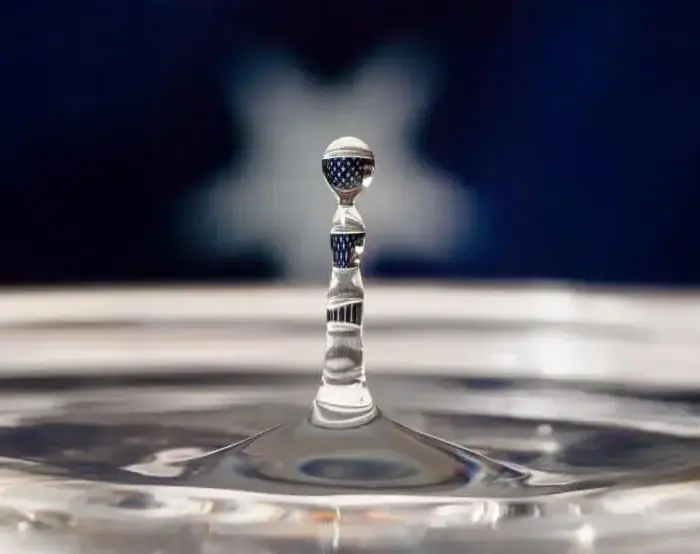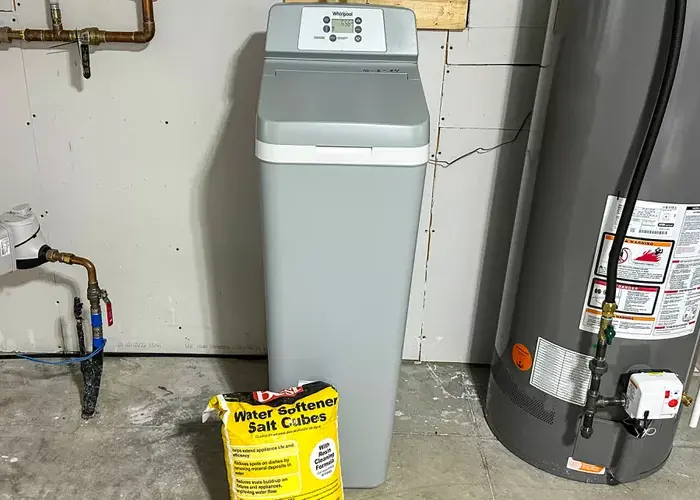Many homeowners in the Greater Houston area are investing in whole house water conditioning systems to improve the quality of the water they receive, whether from a municipal source or a private well. Quoting from the Houston Chronicle of January 16, 2005, “Water purification in homes has become more and more popular.”
Houston’s water comes from a number of surface and ground water sources, and the quality of the source water varies. The largest municipal water supplier, serving about 2.7 million people, is the City of Houston, Public works Department. In addition, numerous MUD’s (Municipal Utility Districts) serve various incorporated cities, county jurisdictions and sub-divisions in and around Houston. According to the Environmental Working Group’s (EWG) National Tap Water Quality Database, which compiles national data from required annual Water Quality Reports, none of them have exceeded the legal limit of any of the EPA’s listed contaminants from 1998 to 2002. The City of Houston’s Water Quality Report of 2004 states, “…Houston’s drinking water meets or exceeds all Texas Commission on Environmental Quality (TCEQ) and EPA requirements.” So, why are homeowners investing in their own water conditioning equipment?
The main reason is the public’s increased overall awareness of health and well-being issues. Many of the Primary Health Related Contaminants regulated by the EPA have Maximum Contaminant Level Goals (MCLG’s) that are lower then the current legally allowed Maximum Contaminant Levels (MCL’s). One example is arsenic. The City of Houston 2004 Water Quality Report states, “While your drinking water meets EPA’s standard for arsenic, it does contain low levels of arsenic. EPA’s standard balances the current understanding of arsenic’s possible health effects against the cost of removing arsenic from drinking water.” As of January 23, 2006, The MCLG, the goal, for arsenic is 0. However, the current MCL, legally allowed level, is 10 parts per billion. Prior to January 23, 2006 the MCL, legally allowed level, was 50 parts per billion.
There are also groups of chemicals known as Disinfection By-Products (DBP’s). The American Water Works Association (AWWA), the industry group for many municipal water treatment utilities, is working on the issue of Disinfection By-Products regulation and states on their web site, “Chlorine kills bacteria, oxidizes iron and manganese, and provides a persistent residual in the water distribution system…. Its major disadvantage is the formation of disinfection by-products with known health effects…. Driven by the regulation of by-products from the chlorine disinfection process, water utilities are looking at changes they can make in their treatment processes to prevent or lower the formation of trihalomethanes (THMs), haloacetic acids (HAAs), or other disinfection by-products (DBPs).”
Other microorganisms such as Cryptosporidium and Giardia may be found in some surface water supplies. If present, they are not destroyed or removed by current treatment techniques. Through 2004, no confirmed occurrences of these have been detected in Houston’s drinking water. The 2004 City of Houston Water Quality Report states, “Infants, some elderly or immuno-compromised persons such as those who have undergone chemotherapy for cancer; those who have undergone organ transplants; those who are undergoing treatment with steroids; and people with HIV/Aids or other immune system disorders… may be more vulnerable to certain microbial contaminants in drinking water than the general population.”
Certain other elements are known as “Secondary Contaminants,” can adversely affect the aesthetic qualities of drinking water, and can cause discoloration and damage to water using appliances and plumbing. The City of Houston 2004 Drinking Water Quality Report explains, “Drinking water, including bottled water, may reasonably be expected to contain at least small amounts of some contaminants. Contaminants may be found in drinking water that may cause taste, color or odor problems. Presence of contaminants does not necessarily indicate that water poses a health risk.”
Many people believe it is worthwhile to reduce any possible contaminants to levels below the current allowable MCL’s, or to eliminate them as much as possible, whether these are primary contaminants, disinfection by-products or aesthetic secondary contaminants. They believe that they can improve the quality of their water beyond current levels, resulting in better tasting drinking water at the kitchen tap with no odor and “soft” water throughout the house without heavy metals or minerals that is much easier to clean with, uses much less soap and does not cause scale buildup in plumbing and appliances.
Whole house water conditioning systems, (point of entry or POE) used in combination with drinking water filters (point of use or POU), can reduce or eliminate many of these contaminants, which may or may not be present in a particular water supply.
David A. Davies is licensed by the Texas Commission on Environmental Quality as a Class III Water Treatment Specialist, is a member of the Water Quality Association, the Texas Water Quality Association and the Greater Houston Builders Association. (info@aquageneral.com.)








